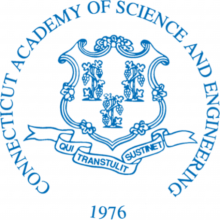Show Notes & Links
Guest & Host Biographies
Pamir Alpay

Prior to his appointment as vice president, he served as executive director of the UConn Tech Park, where he was the University’s chief advocate for industry-informed research and its primary liaison between the research community and government collaborators. In this role he established partnerships with industry, state government, and federal agencies resulting in investments of more than $300 million for applied research. Alpay also established partnerships with small to medium-size regional businesses as part of core outreach efforts, critical to UConn’s mission of supporting economic growth in the state.
Dr. Alpay is also a Board of Trustees Distinguished Professor of materials science & engineering and physics. Alpay’s research is at the intersection of materials science, condensed matter physics, and surface chemistry. As an investigator, Alpay has raised more than $45 million for research and development from federal and state agencies and industry. Dr. Alpay has served as PI and co-PI of a multi-year $28 million interdisciplinary Air Force Research Lab (AFRL) contract dedicated to optimization of high value-added manufacturing technologies for aerospace components. Dr. Alpay holds the rank of Fellow of the American Physical Society, ASM International, and the American Ceramic Society, and he is an elected member of the Connecticut Academy of Science & Engineering (CASE). He has authored over 200 peer-reviewed journal publications and conference proceedings, five invited book chapters, and a book on the physics of functionally graded smart materials.
Alpay earned his Ph.D. in materials science and engineering from the University of Maryland and his B.S. and M.S. from Middle East Technical University in Ankara, Turkey.
Michael Crair

Dr. Crair obtained his doctoral degree in physics from the University of California, Berkeley, and did postdoctoral training in physics and neuroscience at Kyoto University and Kyoto Prefectural Medical School in Japan and in neuroscience at the University of California, San Francisco. He was a faculty member at Baylor College of Medicine in Houston, Texas, before joining Yale as a member of the Department of Neuroscience in 2007. He has directed Yale’s Vision Core Program, the Graduate Program in Neurobiology and was Deputy Chair of the Department of Neuroscience until 2017, then Deputy Dean for Scientific Affairs (Basic Science Departments) at the School of Medicine before becoming Vice Provost for Research at Yale University in 2020.
Dr. Crair’s research program develops and employs advanced imaging techniques to examine the basic mechanisms that mediate brain circuit plasticity, development and regeneration, with a focus on the mammalian visual system. He has made fundamental contributions to our understanding of neural activity in the developing brain, for instance by demonstrating that early spontaneous neuronal activity is an essential part of normal brain development. He is currently exploring the mechanisms by which this activity is generated and how it shapes brain circuit development. He has been awarded numerous honors for his research and teaching, including the Esther A. and Joseph Klingenstein Foundation Fellowship Award in the Neurosciences, the Marc Dresden Excellence in Graduate Education Award, and a NARSAD-Sidney R. Baer Jr. Foundation Young Investigator Award. He has also been named an Alfred P. Sloan Foundation Research Fellow, a John Merck Fund Scholar and the March of Dimes Foundation’s Basil O’Connor Fellow. His research is funded by the National Eye Institute, the National Institute of Mental Health and the National Institute of Neurological Disorders and Stroke of the National Institutes of Health.
Host, Tanimu Deleon





